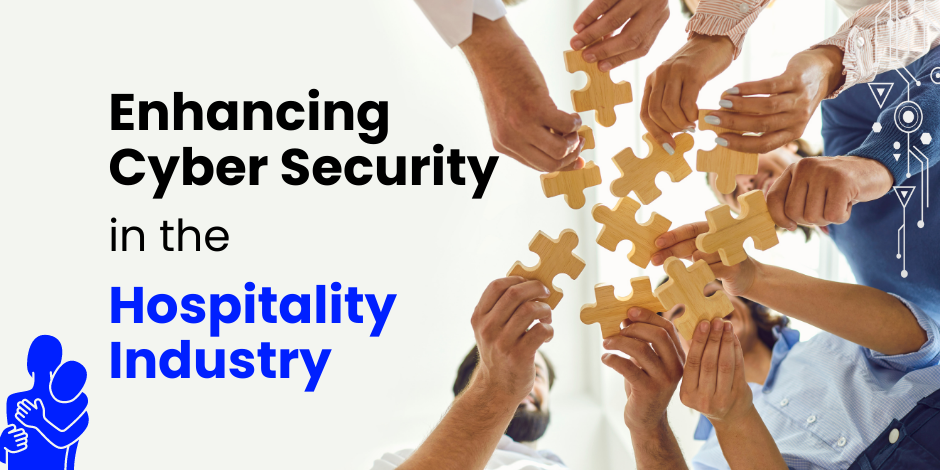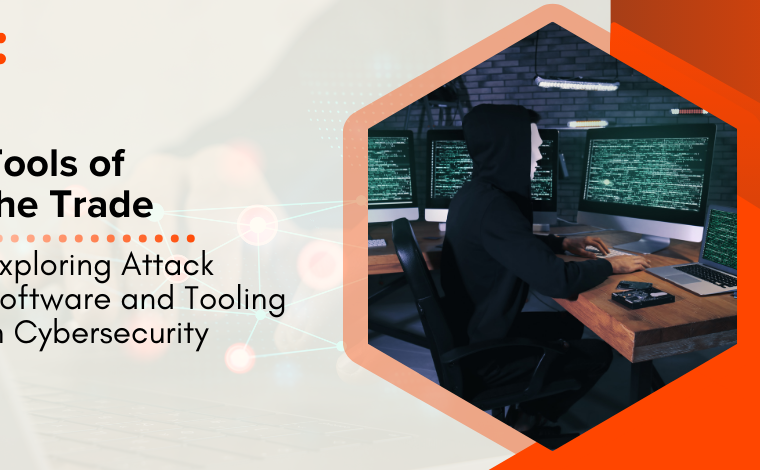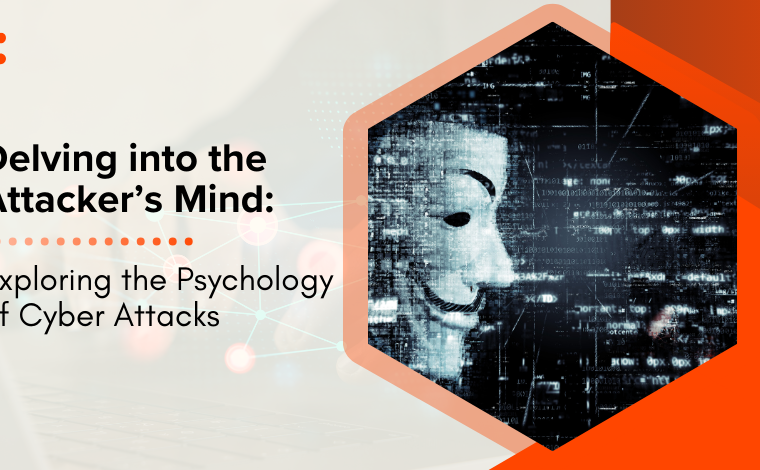Enhancing Cyber Security in the Hospitality Industry

Stay Informed With Our Weekly Newsletter
Receive crucial updates on the ever-evolving landscape of technology and innovation.
The hospitality industry plays a vital role in the global economy, providing accommodation, dining, and entertainment services to millions (if not billions) of people each year.
With the increasing reliance on technology and the growing threat of cyber attacks, it is crucial for businesses in this industry to prioritize and enhance their cyber security measures.
Understanding the importance of cyber security in the hospitality industry is the first step towards protecting sensitive guest information and safeguarding the reputation of hotels and restaurants.
Understanding the importance of cyber security in the hospitality industry

In an interconnected world, where guests make reservations online, provide personal information, and perform financial transactions, the role of cyber security in the hospitality industry cannot be underestimated.
It’s not just about protecting data, but also involves maintaining trust and confidence among guests. A breach can result in financial losses, legal consequences, and reputational damage.
As technology continues to advance, so do the threats that businesses face. Cyber criminals are constantly finding new ways to exploit vulnerabilities and gain unauthorized access to sensitive information. This makes it imperative for hotels and restaurants to prioritize cyber security to stay one step ahead of potential attacks.
The role of cyber security in the hospitality industry
Cyber security in hospitality encompasses a range of measures designed to protect the confidentiality, integrity, and availability of information and systems. It involves implementing policies and technologies to prevent unauthorized access, detect and respond to threats, and recover from cyber incidents.
One of the key components of cyber security in hospitality is securing guest information. Hotels and restaurants collect a vast amount of personal data, including names, addresses, phone numbers, and credit card details. This information needs to be protected from unauthorized access and potential breaches.
Another important aspect of cyber security in hospitality is securing the hotel or restaurant’s network infrastructure.
This includes implementing firewalls, intrusion detection systems, and encryption protocols to prevent unauthorized access to the network and ensure the integrity of data transmission.
Furthermore, employee awareness and training play a crucial role in maintaining cyber security. Staff members need to be educated about best practices for handling sensitive information, recognizing phishing attempts, and reporting any suspicious activity.
The cost of cyber attacks on hotels and restaurants
 Cyber attacks can have significant financial implications for hotels and restaurants. The cost of a data breach includes expenses related to incident response, legal fees, regulatory fines, as well as potential loss of customers and revenue.
Cyber attacks can have significant financial implications for hotels and restaurants. The cost of a data breach includes expenses related to incident response, legal fees, regulatory fines, as well as potential loss of customers and revenue.
However, the impact of a cyber attack goes beyond immediate financial losses. A breach can result in reputational damage that can take years to recover from. Guests are more likely to choose establishments that prioritize cyber security and protect their personal information.
Cyber attacks can also lead to legal repercussions. Hotels and restaurants have a legal obligation to protect guest data and comply with privacy regulations. Failure to do so can result in significant fines and legal penalties.
It is important for hotels and restaurants to invest in robust cyber security measures to mitigate the risks associated with cyber attacks. This includes regularly updating security systems, conducting vulnerability assessments, and staying informed about the latest threats and trends in the industry.
By prioritizing cyber security, hotels and restaurants can safeguard guest information, maintain trust, and protect their reputation in an increasingly interconnected world.
Current state of cyber security in the hospitality industry
The hospitality industry faces numerous cyber threats that require constant vigilance and proactive measures. Understanding the common cyber threats in the hospitality industry is crucial in order to develop effective strategies to mitigate them.
Common cyber threats in the hospitality industry
Cyber criminals target hotels and restaurants through various methods, including phishing attacks, malware, ransomware, and social engineering. These threats can lead to unauthorized access to guest information, financial theft, or disruption of operations.
Recent case studies of cyber attacks in the hospitality industry highlight the need for robust cyber security measures and the potential consequences of insufficient protection.
Case studies of cyber attacks in hospitality
In 2018, a major hotel chain experienced a significant data breach, compromising the personal information of millions of guests. The breach resulted in reputational damage, a decline in bookings, and substantial financial losses.
Another well-known restaurant chain experienced a cyber attack that resulted in the compromise of customer credit card information. The incident led to a loss of customer trust and a drop in sales.
Strategies for enhancing cyber security
Enhancing cyber security in the hospitality industry requires a multifaceted approach that addresses both technological and human factors. One of the best strategies for enhancing cyber security is implementing strong password policies, regularly updating software, and training employees on cyber security best practices are key strategies to consider.
Implementing strong password policies
Weak passwords are one of the most common vulnerabilities exploited by cyber criminals. Implementing a strong password policy that includes a combination of letters, numbers, and symbols, as well as regular password changes, can significantly reduce the risk of unauthorized access.
Regular software updates and patches
Outdated software often contains known vulnerabilities that hackers can exploit. Regularly updating and patching software helps address these vulnerabilities and protect against potential cyber threats.
Employee training and awareness programs
Employees are often the weakest link in cyber security. Establishing comprehensive training and awareness programs can educate employees about the risks associated with cyber attacks, phishing attempts, and social engineering. By instilling a culture of security awareness, employees become an essential line of defense against cyber threats.
Role of technology in strengthening cyber security
Technology plays a crucial role in enhancing cyber security in the hospitality industry. Encryption, firewalls, multi-factor authentication, and artificial intelligence are among the technological tools that can strengthen cyber defenses.
Use of encryption and firewalls
Encryption is a powerful technique that protects data by converting it into an unreadable format. Firewalls act as a barrier between internal networks and the outside world, monitoring and filtering incoming and outgoing traffic to prevent unauthorized access.
Benefits of multi-factor authentication
Multi-factor authentication adds an extra layer of security by requiring users to provide multiple forms of identification, such as a password and a unique code sent to their mobile device. This significantly reduces the risk of unauthorized access, even if a password is compromised.
Role of artificial intelligence in cyber security
Artificial intelligence (AI) has immense potential to improve cyber security in the hospitality industry. AI-powered systems can analyze vast amounts of data, detect patterns, and identify potential threats in real-time. By automating threat detection and response, AI helps businesses stay one step ahead of cyber criminals.
Legal and regulatory aspects of cyber security in hospitality
 In addition to technological and procedural measures, businesses in the hospitality industry need to comply with legal and regulatory requirements related to cyber security.
In addition to technological and procedural measures, businesses in the hospitality industry need to comply with legal and regulatory requirements related to cyber security.
Understanding data protection laws
Data protection laws, such as the General Data Protection Regulation (GDPR), impose strict obligations on businesses to protect the personal data of individuals. Compliance with these laws is essential to avoid legal consequences and maintain the trust of customers.
Compliance with industry standards and regulations
The Payment Card Industry Data Security Standard (PCI DSS) sets guidelines for businesses that process credit card transactions. Compliance with these standards is essential for businesses to protect customers’ credit card information and maintain the integrity of the payment ecosystem.
Enhancing cyber security in the hospitality industry is a continuous process that requires ongoing assessment, implementation of best practices, and adaptation to emerging threats.
By understanding the importance of cyber security, adopting effective strategies, leveraging technology, and complying with legal and regulatory requirements, businesses can safeguard their operations and protect the sensitive information entrusted to them by guests.
If you want to learn more about how you can protect your hospitality business from the threat of cyber security, then check out the courses offered by the Institute of Data. Book a career consultation with a member of the team to learn more.




